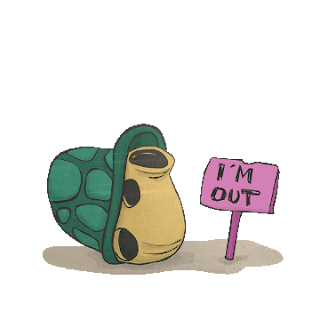Talks
"Large-scale conference contributions" (2015 – today):
From cosmic lasagna to space-time spaghetti – obtaining the least-model-dependent strong gravitational lensing probe, CRAL Seminar, Lyon, France (2025) (video) supported by COST Action CA21136 Addressing observational tensions in cosmology with systematics and fundamental physics (CosmoVerse) supported by COST (European Cooperation in Science and Technology)
Abell 3827 – Constraints on Dark Matter & MOND, Challenges of Modern Cosmology 2, online workshop (2024) (video)
As good as it gets – towards the best-understood H0 from strong gravitational lensing, Workshop on strong gravitational lensing beyond the main lens, Montpellier, France (2024), (conference website)
Lensing of '69 – Free lensing from its heuristic models, Invited colloquium talk at ASIAA (2024), (video)
From cosmic lasagna to space-time spaghetti -- obtaining the least-model-dependent strong gravitational lensing probe, 32nd Texas Symposium on Relativistic Astrophysics, Shanghai (2023)
As good as it gets – towards the best-understood H0 from strong gravitational lensing, Cosmology from Home 2023 (2023), (video)
The case against the Cosmological Principle (and/or FLRW), Shaun's Cosmology Talk YouTube Channel (2023), (video)
Where my DAEMON hides – Power-law mass density models from fundamental principles, Copernicus Webinar and Colloquium Series (2023), (webinar website)
Observables for extremely charged and massive primordial black holes, Bahamas Advanced Study Institute & Conferences 2023, Bahamas (2023), (conference website)
Where my DAEMON hides – Spatial configurations of dark matter particles, MIAMI2022, Miami, Florida (2022), (conference website)
Lensing of '69 – Free lensing from its heuristic models, Bahamas Advanced Study Institute & Conferences 2022, Bahamas (2022), (conference website)
Can we test cosmic homogeneity and isotropy?, Bahamas Advanced Study Institute & Conferences 2022, Bahamas (2022), (conference website)
As good as it gets – solving the H0-tension à la Ellis & Stoeger, Workshop on Tensions in Cosmology, Corfu (2022)
As good as it gets – towards the best-understood H0 from strong gravitational lensing, Challenges to ΛCDM, Thessaloniki (2022), (workshop website)
Can we test cosmic homogeneity and isotropy?, History, Philosophy & Sociology of Cosmology & Astroparticle Physics Conference, Bonn (2022), (book of Abstracts)
Use data not models Lensing of '69 – An example for data-driven inference, Debating the potential of machine learning in astronomical surveys, Paris (2021), online-talk due to COVID-19 (video)
The Cosmic Fruit Salad 2 – Irreducible Minkowski Tensors for astrophysical applications, Conference on Convex, Integral and Stochastic Geometry, Bad Herrenalb (2021), online-talk due to COVID-19
Where my DAEMON hides – The emergence of self-similar cosmic structures, 16th Marcel Grossmann Meeting (2021), online-talk due to COVID-19 (video, starting 02:02:00)
Lensing of '69 – Free lensing from its models, 16th Marcel Grossmann Meeting (2021), online-talk due to COVID-19 (video, starting 00:40:16)
Where my DAEMON hides – one explanation to rule all lens models, Time-Domain Cosmology with Strong Gravitational Lensing (2021), online-talk due to COVID-19 (video)
Self-gravitating dark matter gets in shape, Newton Seminar Series (2020), online-talk (video)
The same, only different – A comparison between plasma and gravitational lensing, Virtual Annual Meeting of the German Astronomical Society (2020), online-talk due to COVID-19
Self-gravitating dark matter gets in shape, 17th Russian Conference on Gravitation, Cosmology and Astrophysics, St. Petersburg (2020), online-talk due to COVID-19
The cosmological Cheshire cat – how to characterise dark matter halo shapes without seeing them, online-lecture at the Virtual Institute of Astroparticle Physics, Paris (2020) (video & discussion)
The cosmic Rondnoir – dark matter halo mass densities from a statistical viewpoint, DPG-Frühjahrstagung, Rheinische Friedrich-Wilhelms-Universität, Bonn (2020), cancelled due to COVID-19
Halo mass densities from a statistical viewpoint, The first Shanghai Assembly on Cosmology and Galaxy Formation, Shanghai Jiao Tong University, Shanghai (2019) (abstract)
One formalism to rule them all – gravitational & plasma lensing, Gravity meets Plasma Workshop, South-Western Institute for Astronomy Research, Yunnan University, Kunming (2019)
Lensing of '69 – Free gravitational lensing from its models, CosmoGold IAP 2019, Institut d'Astrophysique de Paris, Paris (2019), (flash-talk video)
Multiply-imaged time-varying sources behind galaxy clusters Comparing FRBs to QSOs, SNe, and GRBs, SRitp Workshop on Fast Radio Bursts, Weizmann Institute of Science, Rehovot (2018)
A model-independent approach to strong gravitational lensing, European Week of Astronomy and Space Science 2018, Liverpool (2018)
Applications of Minkowski Tensors in Gravitational Lensing, Geometry and Physics of Spatial Random Systems, Bad Herrenalb (2017)
Model-independent characterisation of strong gravitational lenses, Galaxy Clusters 2017, Santander (2017)
Model-independent characterisation of strong gravitational lenses, The Sino-Germany Workshop on Galaxy and Cosmology 2016, Guangzhou (2016)
Model-independent characterisation of strong gravitational lenses, Annual Meeting of the German Astronomical Society, Bochum (2016)
Model-independent characterisation of strong gravitational lenses, Gravitational Lensing 2016, Leiden (2016)
In addition, I was a member of the scientific organising committee for
- Heidelberg Astronomers' Convention 2018
- Heidelberg Astronomers' Convention 2016
"Small-scale conference contributions" (2008 – 2014):
J. Wagner, E. Schmitt, F. Riede, M. Hausmann, J. Hesser, Denoising and detection of Her2/neu gene amplification in fluorescence microscopic data, Microscopic Image Analysis with Applications in Biology, Heidelberg (2011)
J. Wagner and B. Ommer, Efficient clustering earth mover’s distance in R. Kimmel, R. Klette, and A. Sugimoto (Eds.), ACCV 2010, Part II, LNCS 6493, Springer, Heidelberg, pp. 477–488, Queenstown (2010)
J. Wagner, F. Löffler, K. König, H. Hinkers, S. Fernandez, C. Schirwitz, F. Märkle, A. Nesterov-Müller, G. Torralba, T. Felgenhauer, K. Leibe, F. Breitling, F. R. Bischoff, V. Stadler, M. Hausmann and V. Lindenstruth, Quality analysis of selective micro-particle deposition on electrically programmable surfaces, Microarray World Congress, San Diego (2010)
J. Wagner, F. Löffler, K. König, S. Fernandez, C. Schirwitz, F. Märkle, A. Nesterov-Müller, G. Torralba, T. Felgenhauer, K. Leibe, F. Breitling, F. R. Bischoff, V. Stadler, M. Hausmann and V. Lindenstruth, Quality control for micro-particle based solid phase peptide synthesis, System Biology of Human Disease, Harvard Medical School, Boston (2010)
In addition, I was a member of the scientific organising committee for
- Annual Colloquium of the Heidelberg Graduate School of Mathematical and Computational Methods for the Sciences 2010
- Posterparty of the Heidelberg Collaboratory for Image Processing 2009


